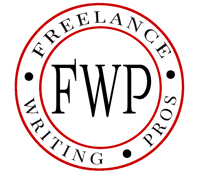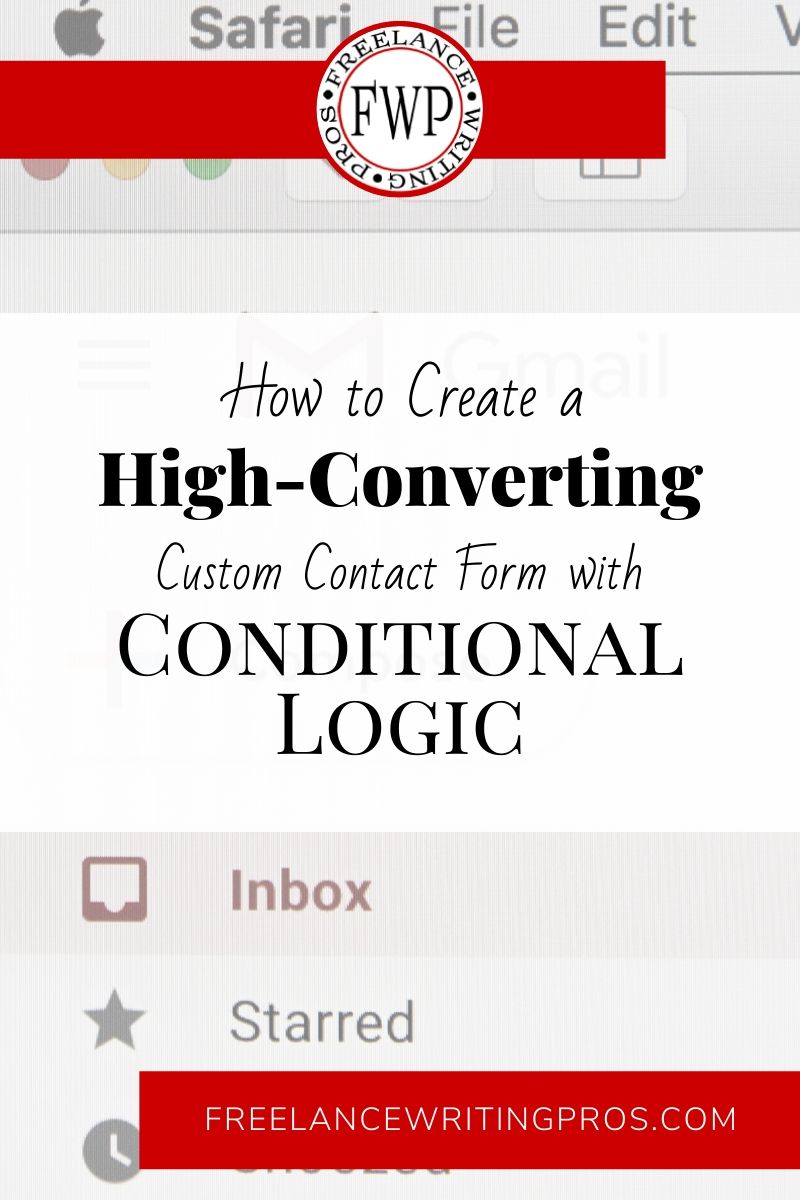
When it comes to your professional website, your primary goal is to get people to contact you (then hire you). That makes your Contact page vital. I highly recommend using custom contact forms on your site such as a quote request form where clients can submit a rough project brief.
When you set up a quote request form however, you’re going to confuse some visitors who aren’t ready for a quote yet. Maybe they have a more general question about your services. Or perhaps they have a question or suggestion related to something they saw on your site. Too specific a contact form might drive them away before reaching out.
My preference has been to include a guided contact form, but I also include a clickable email address right on the page for other inquiries.
This can work. But visitors won’t always notice it right away. And not everyone wants to have their email address published where scrapers can grab it or be a burden on visitors by making them retype something like “youraddress(at)yoursite(dot)com.”
So let’s look at an alternative: setting up a custom contact form using conditional logic.
What is Conditional Logic?
When creating a form, conditional logic is when you set an “if this, then that” scenario.
For example, if a visitor clicks a specific radio button, then certain fields will appear. Or if a user answers a particular question a certain way, then different contact form options appear.
I set up a very simple example on my contact page at ProBusinessWriter.com/contact/ that you can look at. In this instance, I have two contact options: request a quote or submit a general inquiry.
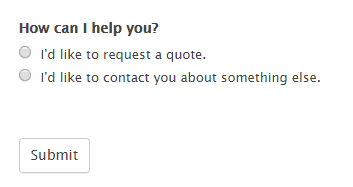
If someone chooses “I’d like to request a quote,” my custom project brief form appears, as shown below.
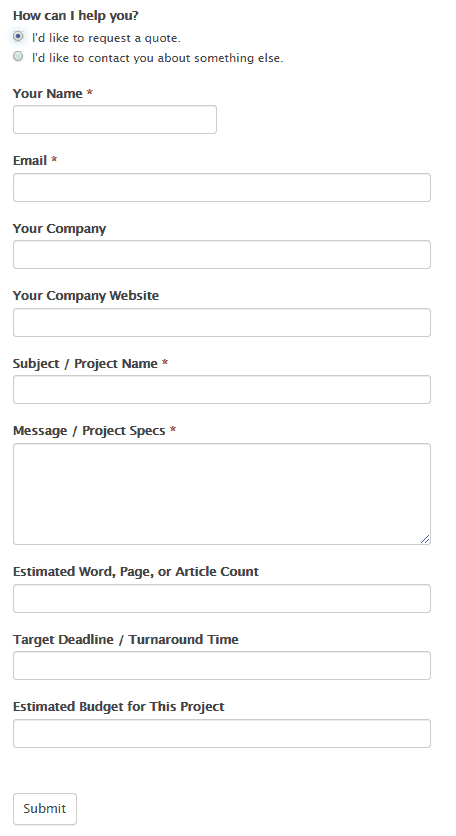
And if someone says they have a general inquiry, they’re shown a simple contact form.
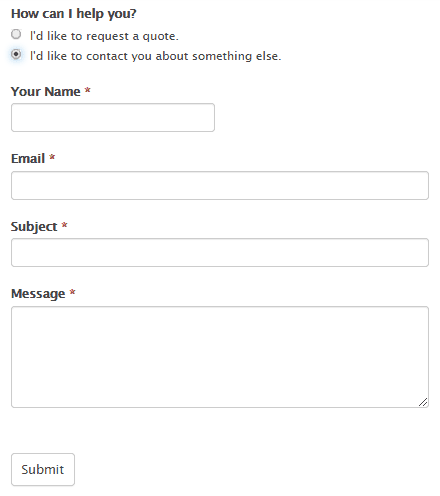
This is a single form — not two different ones. But different fields are shown depending on the initial option a visitor chooses.
I set this up with two simple options. But if you get other types of routine emails, you might add other options. For example:
- I’d like to contact you about my products or services. (If you get a lot of pitches)
- I’d like to publish a guest post on your site. (Where you might include a full guest post submission form)
- I’d like to schedule a call. (Where you would include a field for them to submit their phone number)
This lets you ask for more information where it’s needed while you don’t drive other prospects away by asking for too much up front for a simple question they might have.
How Conditional Logic Content Forms Can Improve Conversions
When I switched from a generic contact form on my professional site years ago to a custom project brief form for quote requests, I saw around a 30% increase in emails from prospects. But that also came with a decrease in other kinds of emails.
If the bulk of emails you receive outside of quote requests are ones you’d rather not, a single quote request form plus a link to email you directly might be enough to increase conversions and keep unwanted email at bay.
But what if you want different types of emails coming through your contact page?
That’s where conditional logic can help you increase conversions.
Have you ever seen a contact or subscription form that asked for way too much unnecessary information (like your address, phone number, and job title)? I know I have. And my instinct is to leave the page and never fill out that form. It’s one thing when those fields are important for some reason, but they’re often more about gathering extra info about you to help that company’s marketing efforts than they are about filling a need of yours.
And frankly, some companies just make it feel like too much effort to get in touch.
With conditional logic, you can get more people to fill out your contact form by giving them a custom experience based on their needs as much as your own.
You also have the ability to test different fields and options to find the right balance between too much and not enough information to drive contacts.
Adding Conditional Logic to Your Site’s Contact Form
Whether or not you can add conditional logic to your existing contact form will depend on how it was built. If it’s a simple coded form or built with a narrow-featured plugin, you might have to rebuild your form from scratch.
Personally I build most sites on WordPress, so I used a form plugin to accomplish this. While I used the Formidable Forms Pro plugin as I already had an unlimited license, that might be overkill if you only need it for a contact form. (Unless you have use for more advanced forms that is. This is the same plugin I use on All Freelance Writing for the freelance writing job board, writers’ directory, and writers’ market database. It can also be used to build highly complex contact forms, front-end guest post submission forms, and much more.)
While Formidable has a free version available that’s a great pick for a single quote request form, conditional logic options aren’t included. However, WP Fluent Forms is a free plugin you can use on a WordPress site that does have conditional logic options available.
An Added Bonus for Premium Form Plugins
Both Formidable Forms and WP Fluent Forms will also let you apply conditional logic to emails actually sent to you. I haven’t tested this in Fluent Forms as I don’t use the premium plugin. But with Formidable I can send different email versions based on sender choices.
For example, this lets me format their message or responses however I prefer. But it also lets me customize the email subject lines.
This then makes it easy for me to filter different types of emails into different boxes in my email software. For example, quote requests go to a box I check frequently whereas general inquiries go to a box still checked regularly but less often.
If I had an option there for people to pitch me, I’d filter that to a box I don’t check as often (and I could even filter those pitches to my junk mail when I’m tired of being pitched unsolicited SEO and marketing services).
Adding conditional logic to your custom contact forms isn’t a “must.” But it’s an easy way to stand out, helping your site’s visitors better navigate their options while giving them guidance to provide the info you really need to turn around quotes faster.
